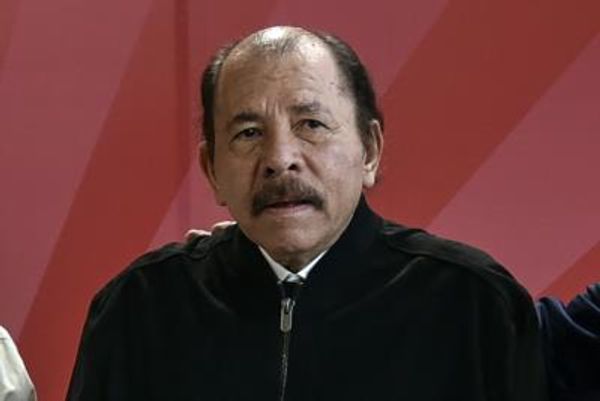
Liberalism and Its Discontents. Francis Fukuyama. Profile Books.
Francis Fukuyama’s Liberalism and Its Discontents presents itself as a wilfully circumspect volume by a leading political-intellectual figure on the world stage.
Fukuyama has much to be circumspect about. He charged onto the world stage in 1989, as a 34-year-old rising academic, with his famous essay “‘The End of History?” in the informatively named journal The National Interest.
As first the Eastern bloc and then the USSR itself came apart, and the major historical-geographical entity of command “socialism” disappeared from the world, Fukuyama’s explanation drew on grand European ideas of capital-H History, little known in anglo-American intellectual circles that said the Cold War’s end showed there was no real alternative to liberal-democratic capitalism — not only now, but forever. There would be change, but we would simply develop within that framework indefinitely. This simple striking thesis gained him entree to the circles of neoliberal and nascent neoconservative power developing in the 1990s. A brilliant career was in the offing.
Fukuyama began as a classical scholar, so in flying high he might have thought about Icarus. He became both beneficiary and victim of the public’s ignorance of these grand themes, which became a source of confusion and then ridicule as they misunderstand his notion of events. In vain, he and his supporters pointed out that he had never said that wars and other disasters would occur. However, he had said that in some ways “the end of history would be a boring time”.
What followed instead were two decades in which history wheeled into the bizarre and grotesque, and the entire relationship between reality and representation wheeled into space. From 9/11 and the ISIS charnel house, to North Korea launching cyberwar over a Seth Rogen movie, the arrival of cloning and the posthuman prospect, the shattering crisis of 2008, and the rise of cartoon/killer populism from Donald Trump to Duterte, Fukuyama’s career became the punchline to a joke, a useful illustration of hubris. Big books — Trust, The Origins of Political Order — arrived in the shadow of such events, historical or not, as the ’90s neocons came to be seen as a sinister clownshow, vicious and incompetent with it.
The times do not suit the type of figure Fukuyama was, and this book is offered not as a triumph announcement but as a modest defence of liberalism in a world of bluster and blockade. It is clearly intended to rally a demoralised centre-right political intelligentsia and subgroups in the face of accusations that neocon liberalism has been the cause of the illiberal populism that followed, the wild success of leaders such as Hungary’s Viktor Orbán, both in his own country and in the global arcadia of the “right international”.
In pursuit of this, Fukuyama has one big idea: liberalism is classical liberalism only, and it has been betrayed by, well, liberalism. Neoliberalism on the right and identity politics on the left have drawn on liberalism’s heritage of individualism, equality and justice, and distorted them by making monocausal claims to right, distorting the balance. This argument has a tragic quality to it — liberalism would be a fine idea, if people stopped trying to apply it! — and it is only achieved by Fukuyama via a familiar intellectual right sleight of hand, by excluding forms of liberalism that do not fit into his narrow definition of it.
Fukuyama has an obvious dilemma in carving out these two forms as unwelcome “mutations”. The first being neoliberalism on the right, which has taken a single aspect of liberalism — property rights — and made them liberalism’s sole good. The second being that part of identity politics on the left, which draws off individual rights to non-impingement to create trigger warnings, speech bans and the like.
The minimal model classical liberalism that he wants to suggest as the necessary moral-political form of modernity can adjudicate between illiberal societies, arguing that Orbán’s Hungary is better than North Korea, say. It can prefer defective liberal to illiberal ones — the US, despite its healthcare, is better than Cuba — but the reproof to these liberal outgrowths can only come from outside the system of classical liberalism itself.
Thus in considering the deformations of neoliberalism, Fukuyama turns attention to the key transformation of anti-monopoly legislation (for decades, a fairly broad and blunt state weapon) by Chicago School jurists such as Robert Bork, who argued that such law can only be seen as coherent if its trigger is manifest and unavoidable consumer disadvantage, of a purely quantitative kind. For Fukuyama this creates the situation:
Is the United States better off seeing its downtown retailers driven out of business, first by Walmart, and then by Amazon? … there is a deeper philosophical issue underlying this …
This is telling, because practically every person of even a minimally reflective bent, save the most doctrinaire libertarian, looks out over the contemporary US — this choked expanse of Walmarts, Starbucks, dead downtowns, ghost malls, and cities without a real restaurant or a bookshop — and knows that something has gone very wrong somewhere. Yet the “wrong” is qualitative, textural, unable to be pinned down within a classical liberal frame.
That would suggest, in Fukuyama’s terms, that a potentially illiberal regime — a heavily enforced ban on chains, branding, financial agglomeration, tilting towards independent proprietors, enforced with nosy inspectors and jail terms — could be judged as “better”, even though it would produce many of the ills liberalism correctly identifies: inefficiency, corruption, intrusion, etc. How many blasted, destroyed downtowns have I wandered through in the US and thought, “The people who let this happen should be shot”, and realised I was not being fully metaphorical?
Faced with this situation — which the book evokes a little more mildly — Fukuyama can only draw in Aristotelean notions of “moderation”, and a caution against the dominance of a single principle. He must also exclude the actual movement of interests — the way in which neoliberalism is a movement of monopoly capital that uses liberal themes as propaganda to cover the illiberalism of its very being. It’s fair enough to limit a study to the movement of ideas, but only if you remind yourself that ideas do not move by themselves. This is exactly what he does do, and the result is that a defence of liberalism on the right can only be achieved by appealing to moral-aesthetic frames outside its technical workings as a public ethic.
Something different occurs in identifying individualist identity politics as the wrong form of individualism. Fukuyama simply asserts the priority of free speech over other liberal goods — property, privacy and non-impingement — by declaring (with later caveats) the non-injurious character of speech to be a truth:
Freedom of speech implies a freedom to think, and is the basis for all the other freedoms that liberal orders seek to protect …
But this is to prejudge liberalism’s hierarchy of imperatives, as if society were unchanging. To have a viable pluralist public sphere, it’s true we must act as if speech has no capacity to harm. But in living in a society of reciprocal consideration, we must be aware that it actually does. This becomes a dilemma for classical liberalism in a society where subjectivity — the engaged self — is a work tool, and thus, in classical liberal terms, part of my property.
Take an example of wounding insult and its effects. In older worlds where most work is banging metal or adding numbers, what is the effect, apart from your hurt, of someone calling you something bluntly racist? But if your job is presenting a training module, redesigning an ad, or finishing an essay on Voss, then one nasty insult and your day is screwed.
The more you engage your mind to work, the more it returns. Your subjectivity or selfhood — in liberal terms — is not a mere concept; it’s a complex non-physical object, capable of damage. Trigger warnings, speech bans, safe spaces are the same as gates and fences, lawful and necessary barriers to protect the private realm of your happiness. The reason this aspect of identity politics is little explored is because neither its proponents nor its detractors want to admit how deeply anchored it is in classical liberal notions of self and world. They’re on a rather illiberal unity ticket/omerta pact there.
Fukuyama avoids the legitimate claim of identity politics to have a classical liberal case for speech limits simply by taking the social framework back to classical liberalism’s factory settings: the self as non-material point-particle, as advanced by Descartes, Locke and the moderns. If the public space of self is the space of reason alone, then there is nothing to be harmed. Not only must a proto-modern fiction of mind be deployed; the defence also demands a rejection of even the most vestigial recognition of psychoanalytic understandings of self and relationships, despite the fact that our lives are steered by notions of trauma, repression, denial, etc. The paradox is total: the right has no need for classical liberalism anymore, since capital is now a monolith bound up with a client state, ranged against individual interests. While left identity politics — which denies it is a liberalism at all — is where liberalism’s claims to right are most fully compelling!
Forgive us, Lord. No one knoweth what the hell is going on. But one way to look at it is this. Liberalism of a classical type opens a set of infinite demands of right — for individualism, for property, etc — and neoliberalism and identity-first politics are versions of such. Only a positive and content-rich ethic of the good can circumscribe it, and that is where an actual contestatory politics about settings comes in.
The infinite demand of the identity liberalism is countered by the idea of a necessary assumption of a minimum robustness of the public self for social action to be possible. Thus in a discussion of something like the public settings of gender identity, we must be cognisant of the material power of words to cause material harm to the non-physical — but real — thing like a transperson’s subjectivity. But we cannot concede to the “infinite” demand that the possibility of such harm morally forbids all discussion of the topic.
Where would a way of thinking about and deciding on these limits come from? Well, from liberalism itself. But from social liberalism, the vast movement that underpins Western social democracy and New Deal America, and that Fukuyama dismisses in a stray line here and there.
Here we can fairly accuse Fukuyama of either distortion or negligent ignorance, of which there are other examples. (His rendering of structuralism and post-structuralism is simply professionally incompetent. His half-argument that Donald Trump talks about “fake news” because Steve Bannon read Foucault shows his continued inability to fully scrutinise, or separate from, the right.)
And, well, it ain’t ignorance. Frankie knows what he doeth here. Social liberalism, the proposition that there is no liberty for material beings without there being a means of life, a positive freedom from reduction to animal suffering, the freedom to be human, is the more effective and useful framework for a good society, precisely because in the 1860s it freed itself from what classical liberalism succumbed to: the quantitative and mechanistic logic of economics.
Classical liberalism’s reduction to negative freedom thus created, as its object, homo classicus liberalus, whose only good was to have the state restrained from acting on it, and who could be seen as equally free whether succeeding or starving. It is this character of classical liberalism that came to the fore after the 2008 crash. Fukuyama’s liberalism is failing because it offers you both Walmart world and no good jobs in it. Give such liberals another decade to do their work, and people will grab at fascism with both hands, put on the uniform and take up the cosh, anything for a world that gives meaning and security, or the sense of it.
In purporting to make a contribution to averting that very real prospect for the United States, Fukuyama has not been able to think beyond his own prejudices as to how broadly the question of “how to live” should be considered, and whether it is possible to conclude whether whole countries got it wrong. It is a thinner book than he usually produces; it is also, despite appearances, a narrower one, a contribution to the American problems to be sure, but not by being a solution to them.







